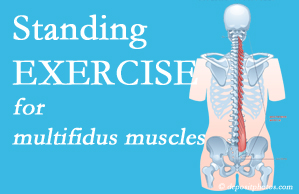
DESCRIPTIONS OF PAIN ARE IMPORTANT TO
YOUR CHIROPRACTOR
“Why do you ask me so many
questions, doc?”
Our Oxford chiropractic patients are the core of our practice. We want
to understand each you and your pain experience well,
treat you well, and be sure you are satisfied with your care
and outcome. That’s why we have you to explain
your pain to us, sometimes a few times and in a variety of
different ways! Words mean different things to different people: “discomfort”
to one may mean “pain” to another while “stiffness” means
“pain” or “discomfort” to a another. It is true! Researchers studied
just what these different words mean to patients. An example of this is the description of “feeling”: pain signified
sharp/shooting, discomfort signified dull/tingling, stiffness signified
tight/restricted. (1) It is important for Satterwhite Chiropractic
to know our patient’s experience with pain to better reach
expectations and enhance satisfaction with care. Patients who went
to an integrated hospital for care of their musculoskeletal pain
and depressive symptoms assessed their pain as 5/10 (10 being
greatest pain) as well as reported multiple pain
locations (9 of 17 participants), low back pain (13 of 17), and neck pain (8 of
17). Those are quite typical of reasons
patients seek chiropractic care! In this setting, because patients trusted their main physician, patients were satisfied with the collaboration among
the various healthcare team members. Patients appreciated
consistency in care from a single caregiving chiropractor. (2)
Satterwhite Chiropractic knows our patients value - and can expect - these
same things from us: consistency, care, collaboration, and results!

Oxford CHIROPRACTIC TIP OF THE
MONTH: Strengthen
Multifidus Muscles While Standing
Back pain. It’s a simple description that may
stem from many factors including the muscles of the spine,
those seen and unseen. The multifidus muscles are such unseen muscles, smaller, deep muscles that run beside the
spine from the cervical spine to the sacrum. These muscles aid
movements like lateral (side) flexion and rotation of the spine when contracted.
(3) Lately, researchers proposed that the multifidi
may be a potential source of back pain since they are described
as being stiffer in low back pain sufferers. Low back pain is associated
with lumbodorsal musculature (which incorporates the
multifidus muscle) fatigue. Standing back extension exercise fatigued the multifidus
well enough which may prevent low back pain initiated
by muscle fatigue. (4) “Superman” (on-the-floor) exercises are well known. Standing
back extension and “superman” exercises are newly reported
as equally helpful in
strengthening these multifidus muscles. (5) That’s great
news! Oxford back pain sufferers can do simple, standing
exercises like this anywhere! The multifidi benefit!
Listen to this PODCAST
with Dr. Paula Hugulet on The Back
Doctors Podcast with Dr. Michael Johnson as she explains
the benefit of improving muscle strength and
function as part of back pain treatment via the Cox® Technic System of Spinal Pain Management.
CONTACT Satterwhite Chiropractic
Schedule your next Oxford
chiropractic appointment today. Your words will be heard. Your multifidus muscles
will be strengthened via proper exercise to lessen and
potentially avert back pain. Satterwhite Chiropractic will ask you questions, and you
are welcome to ask Satterwhite Chiropractic questions, too!